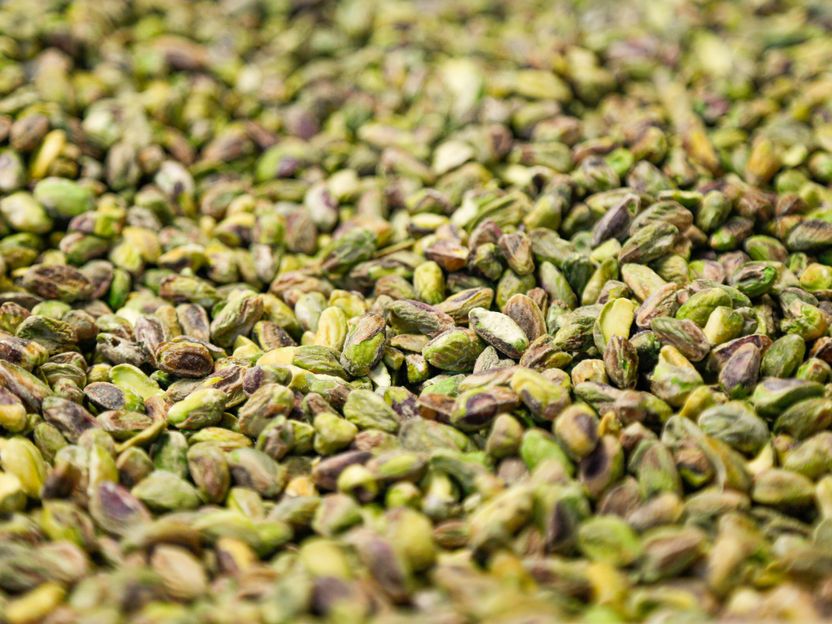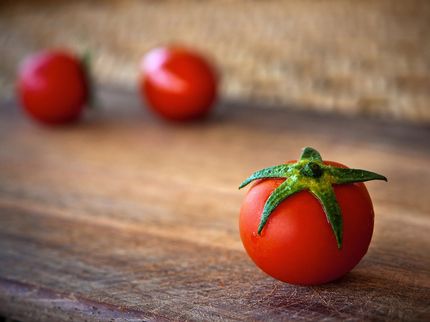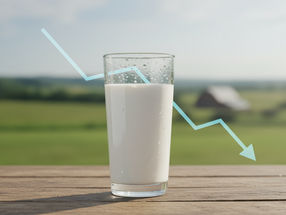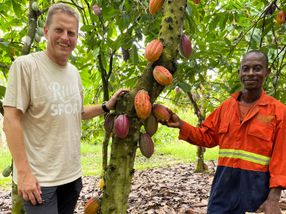New study: Pistachios are rich in antioxidants
Advertisement
Foods high in antioxidants are consistently recommended as part of a healthy lifestyle. New research suggests that a diet high in antioxidants may also help reduce the risk of death.[1] Individual fruits and vegetables are considered foods high in antioxidants. A recent Cornell University study published in the journal Nutrients provided new insight.[2] pistachios have a very high antioxidant capacity, and one of the highest when measured against values from the study of many foods commonly known for their antioxidant capacity, such as blueberries, pomegranates, cherries, and beets.[3], [4], [5]

unsplash
Cornell University researchers wanted to better understand the potential mechanism leading to the health benefits that pistachios have been associated with in recent studies. They studied pistachios to determine the following:
- The composition of pistachios' phytochemicals - compounds in plants that may help reduce the risk of chronic disease and maintain normal body function.
- The antioxidant power of pistachios.
- Whether pistachio extracts can help prevent tumor cell growth (breast, liver and colon cancer cells) under laboratory conditions.
The researchers used two different methods to measure the antioxidant potential of pistachios - Oxygen Radical Absorbance Capacity (ORAC, ability to scavenge oxygen radicals) and Cellular Antioxidant Activity (CAA, cellular antioxidant activity) - and found that pistachios have very high antioxidant activities.
"We were excited to see that the antioxidant capacity of pistachios came out so high in our study," says Rui Hai Liu, Ph.D., professor of food science at Cornell University. "When we compare the values with those of other common antioxidant foods studied using the same method, we find that the antioxidant activity of pistachios is higher than that of foods commonly considered to be particularly rich in antioxidants, such as blueberries, cherries and beet.2, 3, 4, 5 We hypothesize that the high antioxidant activity of pistachios is due to the unique
compounds in pistachios such as vitamin E, carotenoids, phenols, and flavonoids. The combination or interaction of these beneficial antioxidants, bioactive compounds, with other nutrients found in pistachios likely contributes to the many health benefits found in studies of pistachios in recent years."
Normal everyday metabolism - from eating, breathing and exercising to the toxins we encounter in the environment - can generate free radicals in the body. Free radicals attack healthy body cells, and this damage is thought to contribute to inflammation and aging, as well as chronic diseases such as heart disease and cancer. Medical professionals recommend dietary antioxidant intake to help protect healthy body cells from free radical damage."[6], [7]
Other study findings:
- Pistachios contain a variety of important phytochemicals such as various members of the vitamin E family (beta-tocopherol and gamma-tocopherol), carotenoids (lutein, zeaxanthin, and beta-carotene), phenols, and flavonoids.
- Measurements using ORAC and CAA both revealed high antioxidant activities for pistachios.2 CAA measures antioxidant activity in cells-how cells take up or absorb antioxidants-and is a more physiologically relevant study that, unlike chemical antioxidant studies, takes into account what might be happening in the human body.3
- Extracts of the secondary plant compounds from pistachios showed potent proliferation inhibitory activities against human breast, liver, and colon cancer cells in vitro , with exceptionally high activity against human breast cancer cells. Extracts of the secondary plant compounds from pistachios were shown to inhibit cancer growth in all three cancer cells (breast, liver, and colon) without causing cytotoxicity to the cells. The researchers reported that this area of study requires further investigation to determine how pistachio extracts cause the inhibition of cancer cell growth observed in this study. Interestingly, population studies show an association between frequent consumption of nuts and reduced risk of certain cancers.[8], [9]
"The health benefits of pistachios have been studied for 20 years, and it is exciting to take a closer look at the specific composition of pistachios that may contribute to overall health," explains Amber Wilson, MS, RD, Director of Nutrition Research and Communication for American Pistachio Growers. "The results of this study confirm the high antioxidant potential of pistachios. The
Is good news for people who want to eat more foods high in antioxidants."
The pistachios used in the Cornell study were grown in California and have a different nutritional profile than pistachios grown in other countries.
Pistachios grown in the U.S. are also a plant-based source of high-quality protein. One serving of pistachios (28 g or 49 kernels) is an excellent source of copper and a good source of protein, fiber, vitamin B6, phosphorus and thiamine.
Most people know that antioxidants are beneficial to health, but many don't know exactly how antioxidants work in the body. For an informational video on antioxidants and a compendium of worldwide research, visit AmericanPistachios.com.
About American Pistachio Growers
American Pistachio Growers (APG) are a voluntary association of more than 865 growers, processors and industry stakeholders in California, Arizona and New Mexico.
------------
[1] Jayedi A, Rashidy-Pour A, Parohan M, Zargar MS, Shab-Bidar S. Dietary antioxidants, circulating antioxidant concentrations, total antioxidant capacity, and risk of all-cause mortality: a systematic review and dose-response meta-analysis of prospective observational studies. Adv Nutr. 2018 Nov 1;9(6):701-716. doi: 10.1093/advances/nmy040. PMID: 30239557; PMCID: PMC6247336.
[2] Yuan W, Zheng B, Li T, Liu RH. Quantification of Phytochemicals, Cellular Antioxidant Activities and Antiproliferative Activities of Raw and Roasted American Pistachios(Pistacia vera L.). Nutrients. 2022; 14(15):3002. https://doi.org/10.3390/nu14153002
[3] Wolfe KL, et al. Cellular Antioxidant Activity (CAA) Assay for Assessing Antioxidants, Foods, and Dietary Supplements. J Agric. Food Chem. 2007, 55, 8896-8907.
[4] Song W, et al. Cellular antioxidant activity of common vegetables. J Agric. Food Chem. 2010, 58, 6621-6629. doi:10.1021/jf9035832.
[5] Wolfe, K., Kang, X., He, X., Dong, M., Zhang, Q., and Liu, R.H. Cellular antioxidant activity of common fruits. J. Agric. Food Chem. 56 (18): 8418-8426, 2008.
[6] Ellis, E. "Antioxidants - Protecting Healthy Cells" Academy of Nutrition and Dietetics. Published March 25, 2021. Retrieved September 19, 2022. https://ots.de/EjojOz
[7] "Understanding Antioxidants" Harvard School of Public Health. Published January 21, 2019. Retrieved September 16, 2022.https://www.health.harvard.edu/staying-healthy/understanding-antioxidants
[8] Bao Y, et al. Association of Nut Consumption with Total and Cause-Specific Mortality.
N Engl J Med 2013; 369:2001-2011. DOI: 10.1056/NEJMoa1307352
[9] Aune D, Keum N, Giovannucci E, Fadnes LT, Boffetta P, Greenwood DC, Tonstad S, Vatten LJ, Riboli E, Norat T. Nut consumption and risk of cardiovascular disease, total cancer, all-cause and cause-specific mortality: a systematic review and dose-response meta-analysis of prospective studies. BMC Med. 2016 Dec 5;14(1):207. doi: 10.1186/s12916-016-0730-3. PMID: 27916000; PMCID: PMC5137221.
Note: This article has been translated using a computer system without human intervention. LUMITOS offers these automatic translations to present a wider range of current news. Since this article has been translated with automatic translation, it is possible that it contains errors in vocabulary, syntax or grammar. The original article in German can be found here.


































































